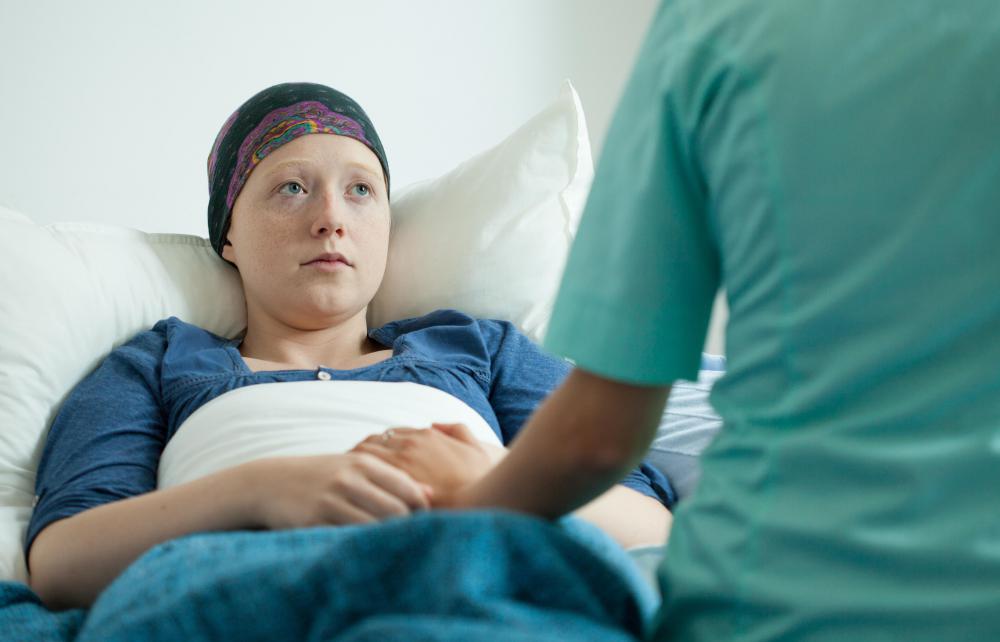At WiseGEEK, we're committed to delivering accurate, trustworthy information. Our expert-authored content is rigorously fact-checked and sourced from credible authorities. Discover how we uphold the highest standards in providing you with reliable knowledge.
What is Induction Therapy?
Induction therapy is the first stage in cancer treatment. The term “induction therapy” is also sometimes used to refer to the treatment of other conditions, depending on the setting. Also known as primary or first line therapy, this therapy is offered with the goal of reducing the number of cancer cells and making the cancer vulnerable to additional treatment. This treatment is designed and supervised by an oncologist, a cancer specialist, in association with other medical professionals like nurses and in consultation with the patient.
When someone is diagnosed with cancer, diagnostic testing is used to determine the source of the cancer and to collect information about it. This information determines which treatments are appropriate and will be used to design a treatment regimen tailored to a patient's case. Induction therapy can include a variety of treatment methods and the application and dosage are determined by weighing the factors involved in the patient's case.

Sometimes, high doses of medication are given to knock cancer cells out quickly. Other patients may be given an adjustment period with low doses, followed by higher doses. The progress of the therapy will be monitored with additional testing. If the cancer is not responding to the treatment, additional treatment options can be pursued. If it is, doctors can see if it is responding in a timely fashion.

During induction therapy, patients can experience a variety of side effects including nausea, confusion, fatigue, dizziness, vomiting, diarrhea, sensitivity to odors, and other symptoms, depending on the medication being used and the dosage. Sometimes, treatments are provided to mitigate the side effects and make the patient more comfortable. Anti-nausea drugs are commonly prescribed with cancer treatments and patients may also consult with a nutritionist to address loss of appetite and ensure that they get enough nutrients during treatment.

After induction therapy comes consolidation therapy, where doctors attempt to kill off the remainder of the cancer cells to achieve remission. If the cancer goes into remission, maintenance therapy is used to keep the cancer at bay. The success of these therapies varies from patient to patient and is dependent on a wide range of factors. Patients can increase their chances of a good prognosis by getting as much information as possible about treatment options so they can reach an informed decision and following medical orders closely, taking medications as directed, and being alert to early warning signs of complications.
AS FEATURED ON:
AS FEATURED ON:















Discussion Comments
Idarubicin is a chemical that is often used in dealing with cancer in induction therapy. This drug gets at the very core of cancerous DNA growths and prevents the protein signals from transmitting and multiplying the leukemic growths.
@dbuckley212
Some also find this to be a helpful practice to help stop smoking and so lower the risk of cancer due to smoke. Coming into contact with subconscious habits and addictions can help you to elicit them and address them, so that they don't haunt you anymore and you don't feel a need to continue smoking.
Some believe that free self hypnosis is of medical significance and can contribute to well being, specifically cancer prevention. There are many paranormal practices which aim at faith healing and elimination of pain via prayer or meditation.
Induction chemotherapy is a painful and difficult technique which is nevertheless effective in keeping cancerous cells from metastasizing. This keeps the cancer in a focused place and enables effective elimination of it.
Post your comments